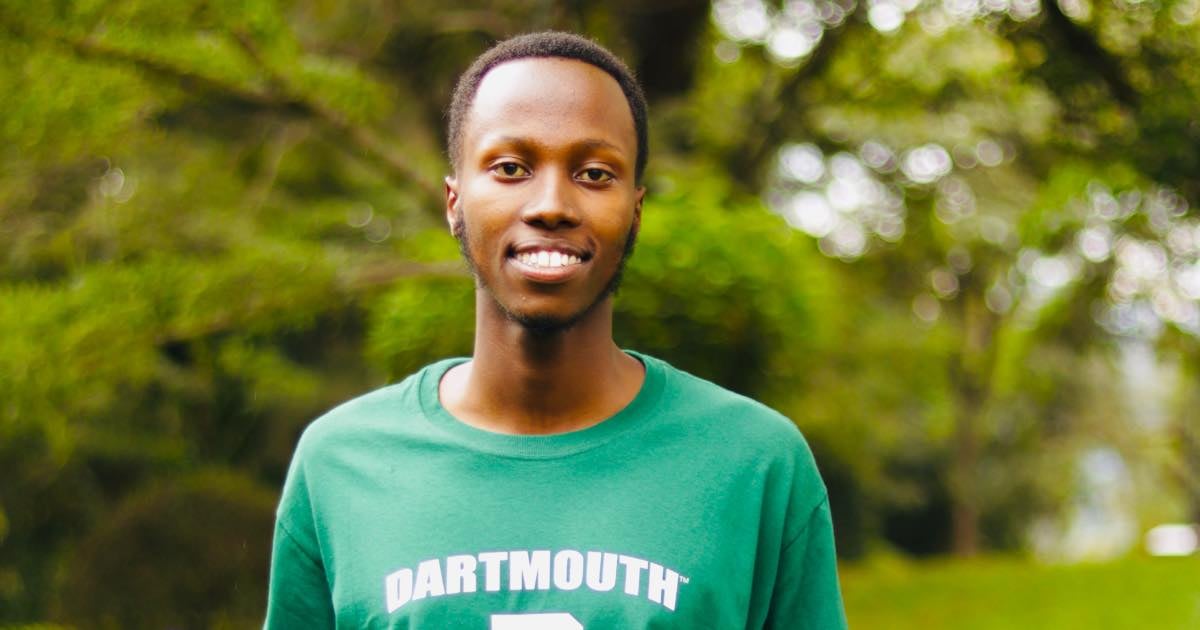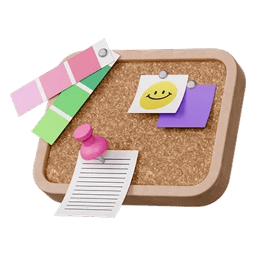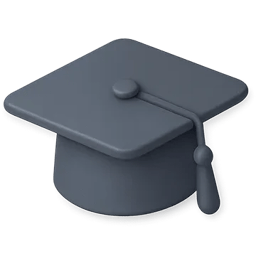High School
I attended a Catholic high school in Rwanda where I studied mathematics, chemistry, and biology. The education system in Rwanda allows students to explore various subjects for three years before narrowing down their focus in the final three years of high school. A friend from high school recommended the Bridge2Rwanda program to me, which I applied to after experiencing a seven-month lockdown due to the COVID pandemic. I applied to the program and was invited for an interview, which went well despite my poor performance on the SAT. My interview and report cards stood out, and I was accepted into the program. I was amazed by the variety of schools available in the US and couldn't believe that there were opportunities to receive ~$90,000 in scholarships annually.
About Bridge2Rwanda
The Bridge2Rwanda program offered various classes, including writing, which I initially struggled with, as did many international students. My English skills were also weak due to Rwanda's transition from a French education system to an English one. This change left students like me with a poor grasp of both French and English. We had to take a gap year to participate in the Bridge2Rwanda program. We lived together in a residence, where we were required to speak English daily – a practice that ultimately paid off.
The program was completely free, which was one of its most amazing aspects. Although the estimated cost would be around $20,000, participants were not required to pay. This approach allowed students from any background to access a life-changing opportunity that they may have never considered possible.
Applying to Dartmouth College
While in Bridge2Rwanda I got interested in Dartmouth College, located in Hanover, a small city that appealed to me more than larger urban areas. Applying to this college involved writing numerous essays, which was a challenging and time-consuming process. College counselors reviewed and critiqued my essays, often requiring me to rewrite them multiple times. I also submitted a research paper (not required), obtained recommendation letters, and completed the Duolingo and SAT exams, although the latter was optional.
GPA
In Rwanda, our academic system doesn't use GPAs but instead relies on percentages and rankings. We received report cards three times a year with our overall percentage and position in the class. In my final year of high school, I maintained an 88% average and consistently ranked first in my class.
SAT + Duolingo
As for standardized tests, I took the SAT twice, scoring 1260 the first time and 1310 the second time. However, I decided not to submit my SAT scores since they were optional, and I believed my application was already strong without them. Considering the intense competition for SAT scores among applicants, I felt that omitting my scores was a good idea.
As for the Duolingo test, I scored 135.
I was fortunate to be accepted through Early Decision (ED) to my college, but I remember some of my friends who applied during Regular Decision didn't get in. Balancing our happiness with being supportive of friends who were struggling emotionally during that time was challenging.

Extracurricular Activities
In my college application, I highlighted various extracurricular activities that showcased my diverse interests and commitment to helping others. One such initiative I founded, which is still running today, is called There For You. This program aimed to assist children in my neighborhood who lacked educational opportunities. We advocated for these children with local administrations to secure funding and reintegrate them into the school system. Additionally, we sought to reconnect orphaned children with orphanages, facilitating adoptions by potential parents.
Another extracurricular activity I mentioned in my application was my role as a choir coach in high school. Next, I included my participation in a cappella group and I also served as the vice president of a club called Tux Friend Club during my high school years.
It's important to work on your extracurricular activities as early as possible. Don't overlook any activity on your list, no matter how small or seemingly insignificant. For example, I added the activity of being a home cook, which may not seem like an extracurricular activity, but it demonstrates a commitment and dedication to something you enjoy doing.
How to get in - coherent theme
It's challenging for me to determine what led to my acceptance, as the college admission process can be somewhat unpredictable. I've always been unsure about how colleges review applications and make their decisions, as I've seen many highly qualified candidates get rejected while others with seemingly weaker applications get accepted. For example, a friend of mine had an almost perfect SAT and a great score in Duolingo but still got rejected in Early Decision and only got accepted in Regular Decision.
That being said, if I had to identify one aspect of my application that may have stood out, it would be the theme of community orientation. I believe that colleges tend to look for a certain personality or trait in their applicants, and having a coherent and well-developed theme throughout my application may have played a role in my acceptance.
My essays, extracurricular activities, and recommendation letters all tied into this theme of community orientation. For instance, one essay I wrote focused on my involvement in a cappella group and how it helped me find a sense of community in a new environment. I also connected this experience to my traditional family values and how singing has always been an important part of my family's culture.
Letter of continued interest
I forgot to mention something that may have helped me in the admission process. I wrote a continued interest letter to my admission officer after submitting my application in late November. In the letter, I updated the officer about my journey since applying and expressed my strong passion for the school. I believe that this letter supported my application and showed my dedication to attending the school.
Additionally, I wrote a research paper on how music impacts mental health. This paper showcased my interest and involvement in music, which was also reflected in my extracurricular activities and personal essay. The research paper covered both the psychological and biological aspects of music and its effects on the brain. Although I submitted the paper after applying, I felt it was worth sharing with the admission officers, so I emailed it to them.
How to waive your application fees
When it comes to application fees, there are some ways around it. For instance, when applying through Common App, your college counselor can request a fee waiver for the application fee, which I was able to receive.
Similarly, when applying for financial aid using CSS Profile, there are fees associated with each school you apply to. I was able to avoid these costs by reaching out to the school directly. I wrote an email requesting a waiver code, and the school provided me with one. As a result, I didn't have to pay anything for my common app and CSS profile applications.
Financial Aid
I was fortunate to receive a full-ride financial aid package. I am extremely grateful for this opportunity, as the yearly amount is around $99,000 USD, with zero parental contribution required.
Currently, I work on campus to meet my own financial needs. The money I earn is not to pay anyone else, but to support myself, whether it be for purchasing a new phone or other personal expenses. There are a variety of job opportunities available on campus, making it relatively easy to find work.
I would like to mention that some of my friends who did not receive a full-ride package wrote an appeal letter. This is something that many students may not be aware of, but it can be a helpful option to consider. After receiving a financial aid package, it is possible to write an appeal letter to the school to explain that while you would love to attend, your financial needs have not yet been met. Schools want to attract talented and enthusiastic students, so it is worth a try. Many of my friends who wrote appeal letters saw how their expected contribution dropped from $8,000 to $1,000, or they even ended up getting a full ride.

Academics at Dartmouth College
When it comes to academics at Dartmouth, there is a great deal of variety depending on your interests. Initially, I planned to study biomedical engineering, which is quite different from economics and computer science. However, after taking a class with an economics professor, I was thoroughly impressed and ended up changing my major to Econ. The professor's teaching was so impactful that it shifted my entire academic trajectory.
In terms of class size, it can range from small classes of 16-20 students to medium-sized classes of 40-45 students. The largest class I have taken had around 100-120 students.
One of the best aspects of the academic experience at Dartmouth is the abundance of opportunities available to students. You will be exposed to many exciting opportunities during your four years here: academic research, research lab work, and more. In my opinion, reaching out to someone is as simple as sending an email introducing yourself. Even if they don't read it, nothing is lost. However, if they do, it might open up a world of possibilities. As an example, I became a Teaching Assistant for an economics course, despite having no background in the subject. I developed a great relationship with the professor, and the experience was very enriching. My advice for students who are studying abroad is to connect with professors, as well as other students, and create a network. These connections are critical because they can open doors that you didn't even know existed.
Orientation & First-year trips
Upon arriving at Dartmouth, the international students had their orientation, followed by the highly anticipated first-year trips. I believe it was one of the best things the school could have included in the orientation program. We had lots of options to choose from and I opted for canoeing, which was so much fun! It was my first time canoeing, and we went out to the Connecticut River and camped out for three days. Each trip has a group of students, and we were around eight to ten in my group. Spending that amount of time with a new group of people helped me make new friends, and some of them are still my friends to this day.
The beauty of the first-year trips is that you get to spend time with people and get to know them beyond just their name, major, or where they come from. Being in a diverse environment and in a new country, it was nerve-wracking, but the first-year trips program made it a lot easier for me.

Plans for the future
I am considering a career in investment banking and my ultimate goal is to give back to my community back home, which aligns with the values instilled in me by the program Bridge2Rwand. Specifically, I aspire to establish a hedge fund or investment banking firm in Rwanda, or elsewhere in East Africa, where these industries are still developing. Being a pioneer in this field would be particularly rewarding for me, given my background in computer science and economics.
College Application Advice
When it comes to preparing for college, I believe it's important to start early and focus on your extracurricular activities. While it may sound cliché, it's solid advice that cannot be overstated. When you're applying to colleges, you are essentially marketing yourself, so it's important to have a strong list of extracurricular activities that align with the values of the schools you're applying to. Choosing the best story to represent yourself is key. Another important factor is attitude. Having a positive, open-minded attitude can make a world of difference in your application process.
I would also suggest creating a list of schools that you think you have a solid shot at getting into. This will help you narrow down your options and focus your efforts on schools that are a good fit for you.
Connecting with people and networking is also important. Don't be afraid to reach out to people who can help you along the way. Even if someone is not able to help you directly, they may be able to offer advice or point you in the right direction. Remember, having a good attitude and being open-minded can make all the difference.






